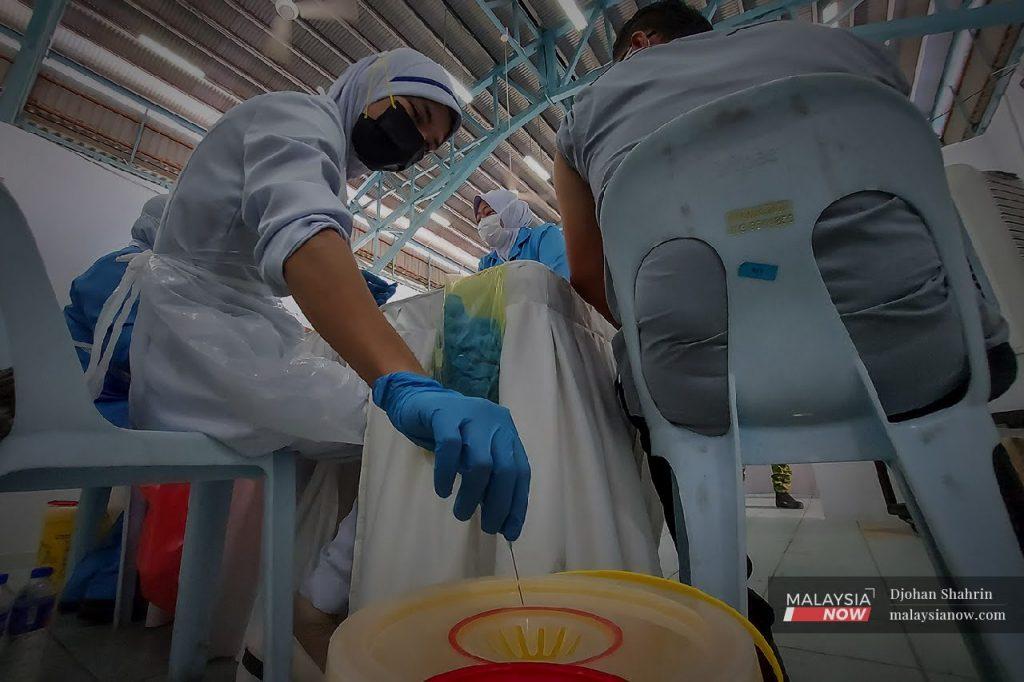Research on local Covid jab ‘still at proof of concept stage’
Deputy minister Ahmad Amzad Hashim says the mRNA vaccine candidate meanwhile will undergo an in-vitro transcription process involving various complex laboratory tests.
Just In
Research on the country’s Covid-19 vaccine is still at the proof of concept stage, the Dewan Rakyat was told today.
Deputy Science, Technology and Innovation Minister Ahmad Amzad Hashim said as for the mRNA vaccine, the candidate vaccine will undergo an in-vitro transcription process involving various complex laboratory tests.
On the inactivated vaccine research, he said the process of inactivating selected viruses would be done and special substances such as adjuvants added to enhance the immune response.
He was replying to a question from Abdul Latiff Abdul Rahman (PAS-Kuala Krai) on the current status of the locally developed mRNA vaccine and about the RM5 million allocation given to Universiti Putra Malaysia (UPM) and Universiti Malaya (UM) for vaccine research and development.
Amzad said the research on the Covid-19 mRNA vaccine was being carried out by researchers at the Institute of Medical Research (IMR), while studies related to the development of inactivated virus vaccine technology are being conducted by IMR, with the cooperation of experts from UPM and the Veterinary Research Institute.
He said the science, technology and innovation ministry through its Combating COVID-19 Fund had also channelled an allocation of RM4.9 million to finance two projects: the Construction of Recombinant Newcastle Disease Virus Expressing Receptor Binding Domain (RBD) Protein of Sars-Cov-2 Virus as a Vaccine Candidate by UPM and the Development of Modular Mucosal Vaccine Platform Using Generally Regarded as Safe (GRAS) Bacteria Against COVID-19, conducted by UM.
Subscribe to our newsletter
To be updated with all the latest news and analyses daily.
